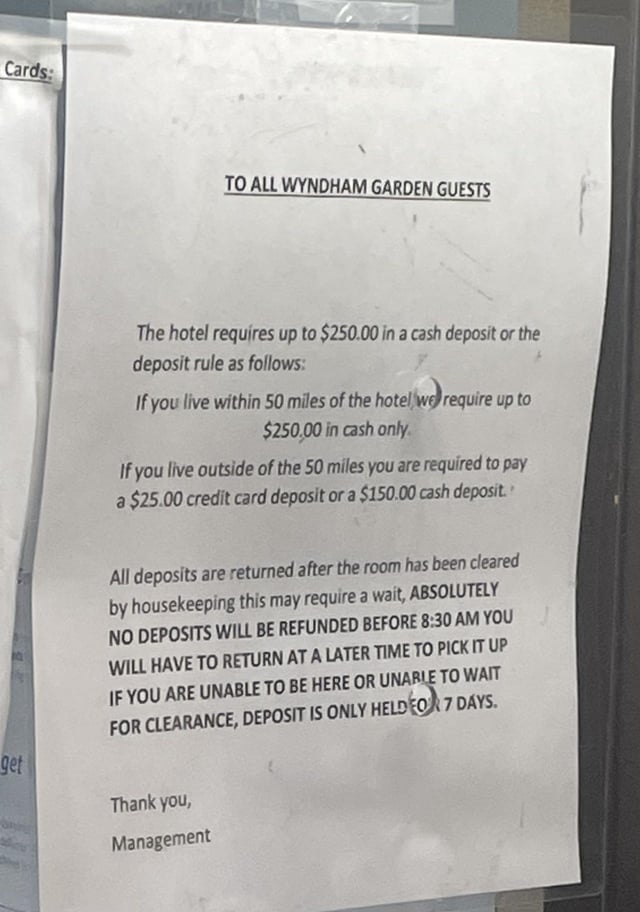Why are Accessible Hotel Rooms Cheaper
Accessible hotel rooms are often cheaper due to lower occupancy rates, as well as their smaller size which results in less square footage to sell. This makes them more appealing to budget-conscious travelers who do not necessarily require the accessible features.
Lower costs of building and maintaining accessible rooms also contribute to their lower prices compared to standard accommodations. Additionally, accessible rooms are designed to accommodate wheelchairs, making them different from regular rooms. However, the difference in prices is mainly influenced by the factors mentioned earlier, making accessible rooms a cost-effective option for those seeking budget-friendly accommodations.
This disparity in pricing between accessible and standard hotel rooms has raised questions and confusion among travellers, prompting discussions on various online forums and platforms.
Navigate Where You Want:
- Analyzing Accessible Room Pricing
- The Business Logic Behind Pricing
- Accessibility Features And Their Impact
- Frequently Asked Questions For Why Are Accessible Hotel Rooms Cheaper
- Can A Normal Person Book An Ada Room?
- What Is The Difference Between Accessible And Regular Room?
- What Does It Mean When A Hotel Room Says Accessible?
- What Does Ada Mean When Booking A Room?
- Conclusion
Analyzing Accessible Room Pricing
Hotel prices are susceptible to occupancy levels. Comparatively, accessible rooms have lower occupancy rates than standard accommodations. This could be due to several factors such as differences in room amenities and space, supply and demand dynamics, as well as the regulatory impact on hotel pricing strategies.
First, accessible rooms are often smaller than other rooms in the hotel. This means that the hotel has less square footage to sell, which results in a lower pricing dynamic. Additionally, the regulatory impact on hotel pricing strategies, such as the ADA (Americans with Disabilities Act) requirements, could play a role in influencing the pricing of accessible rooms.
The Business Logic Behind Pricing
Accessible hotel rooms are often cheaper due to lower occupancy levels, as they have a smaller square footage to sell compared to standard rooms. This pricing disparity also stems from the reduced cost of building and maintaining accessible rooms. Moreover, lowering the price of accessible rooms can make them more appealing to budget-conscious travelers, contributing to broader inclusivity and pricing decisions. By marketing accessible rooms to a wider audience, hotels can attract more guests and optimize their cost structures. Overall, the business logic behind pricing accessible hotel rooms involves considerations of space utilization, customer inclusivity, and demand optimization.
Accessibility Features And Their Impact
Accessible hotel rooms are often cheaper than standard rooms due to several factors. First, accessible rooms have lower occupancy rates, which can result in reduced pricing. Additionally, these rooms are often smaller in size, providing the hotel with less square footage to sell, thus impacting their pricing. Furthermore, the lower cost of building and maintaining accessible features in the rooms contributes to their affordability. When comparing maintenance costs for different room types, accessible rooms could require less upkeep, making them more cost-effective for hotels. Overall, the combination of lower occupancy rates, smaller room sizes, and reduced maintenance costs makes accessible hotel rooms a more affordable option.

Credit: wheelchairtravel.org
Frequently Asked Questions For Why Are Accessible Hotel Rooms Cheaper
Can A Normal Person Book An Ada Room?
Yes, a normal person can book an ADA room in the United States. Handicapped rooms are available to anyone, but by law, they are to be held for someone who needs the accessible features.
What Is The Difference Between Accessible And Regular Room?
Accessible rooms are designed to accommodate people with disabilities, featuring wider doorways and grab bars. Regular rooms do not have these features.
What Does It Mean When A Hotel Room Says Accessible?
Accessible hotel rooms are designed to accommodate individuals with disabilities. They may have wider doorways and grab bars in the bathroom.
What Does Ada Mean When Booking A Room?
ADA stands for the Americans with Disabilities Act and when booking a room, it signifies that the room is designed to accommodate people with disabilities.
Conclusion
The lower cost of construction and maintenance for accessible hotel rooms often translates to cheaper prices. Additionally, these rooms generally have smaller square footage, leading to reduced pricing. This makes them more appealing to budget-conscious travelers who may not require the accessible features, resulting in lower occupancy rates.
Accessible rooms can provide a cost-effective option without compromising quality.
Related Articles To Read:
- Are Hotel Rooms Soundproof?
- Can Anyone Book a Hearing Accessible Hotel Room?
- How Far is the Strat Hotel from the Bellagio
- How to Be a Fast Hotel Housekeeper
- How to Buy a Hotel Room Permanently
- How to Decorate a Hotel Room Romantically
- How to Get Back Items Left in Hotel Room
- Are Emotional Support Animals Allowed in Hotels?
- Are Hotel Deposits Refundable?
- Are Hotel Towels Clean? Unveiling the Hidden Truth





